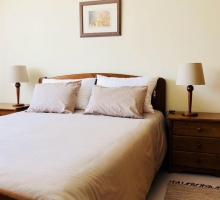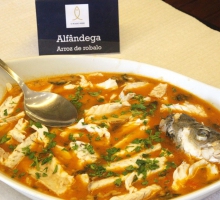Abílio Manuel Guerra Junqueiro was born in Freixo de Espada à Cinta in 1850. He graduated in Law in Coimbra, between 1868 and 1873. He practiced law and was a member of the Progressive Party, a position that became him famous for the art of oratory. He was minister of Portugal in Switzerland during the years 1911 and 1914. As a poet, Junqueiro left us a vast work that starts in 1866 with the edition of Mysticae Nuptiae and ends with the “Oração à Luz”, published in 1904. The theme of his lyrical compositions varies between the rapturously propagandistic, satirical and iconoclastic inspiration, with social concerns, as far as through the criticism to the society, it seeks to give a scientific character to poetry. But also live in their verses the intimacy, confidentiality, the mystical tone, religiosity, especially in the last phase of his work that comes to indicate the receptivity to the formal innovations and to the suggestive sensitivity of the Symbolists.
Guerra Junqueiro lived in Vila do Conde between the years 1899 and 1906. The writer, coming from Porto, where the bubonic plague made victims, sought in this village overlooking the river Ave, the good air that could deliver him of the deadly epidemic. He dwelt a villa in Artur Cunha Araújo Avenue, nearby Primary School which was built with the legacy of Conde de Ferreira. Here, his daughter Maria Isabel, met her husband, a lawyer with office in the then Vila do Ave.
Guerra Junqueiro was also a lover of antiques, visiting often, the workshop of the woodworker and the woodcarver João da Jacinta, who worked at Rua da Misericordia. He died in Lisbon in 1923.
Location: Vila do Conde
Guerra Junqueiro lived in Vila do Conde between the years 1899 and 1906. The writer, coming from Porto, where the bubonic plague made victims, sought in this village overlooking the river Ave, the good air that could deliver him of the deadly epidemic. He dwelt a villa in Artur Cunha Araújo Avenue, nearby Primary School which was built with the legacy of Conde de Ferreira. Here, his daughter Maria Isabel, met her husband, a lawyer with office in the then Vila do Ave.
Guerra Junqueiro was also a lover of antiques, visiting often, the workshop of the woodworker and the woodcarver João da Jacinta, who worked at Rua da Misericordia. He died in Lisbon in 1923.
Location: Vila do Conde




